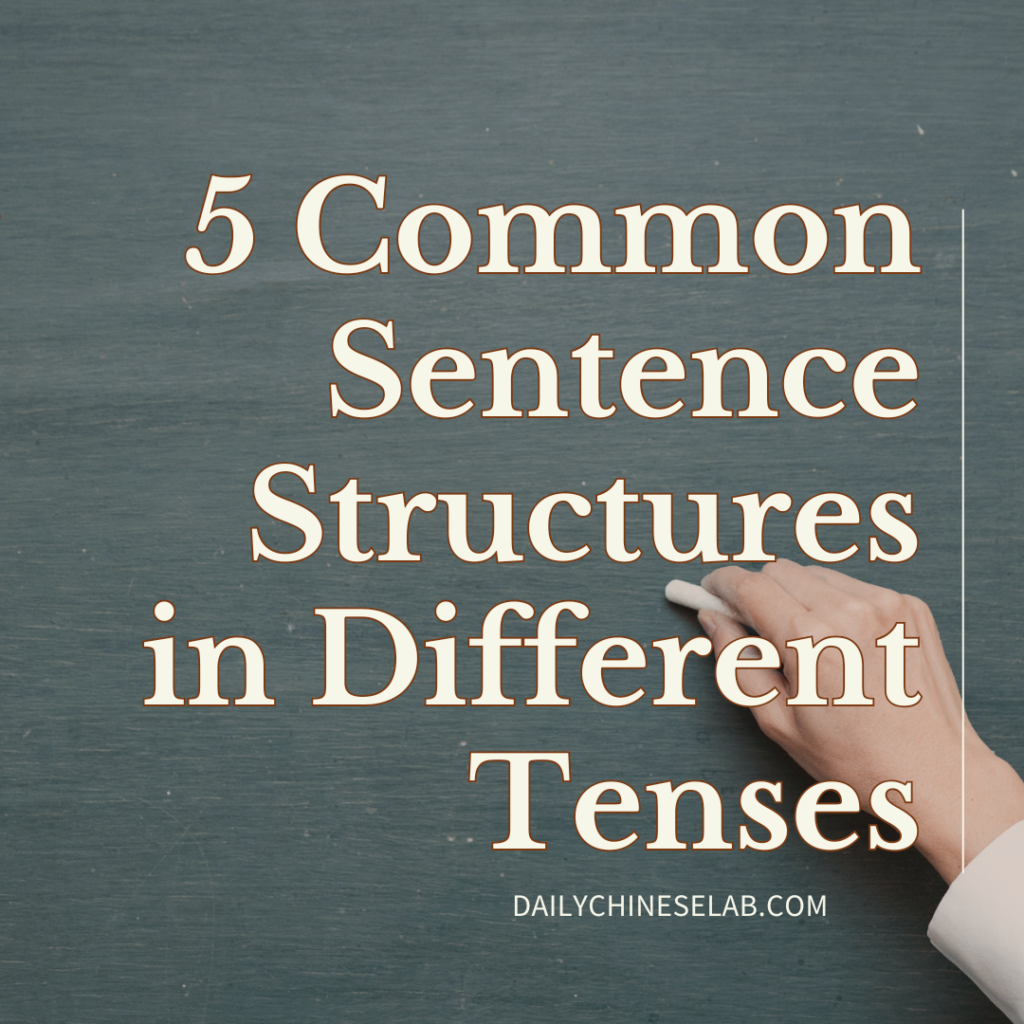Understanding English tenses can significantly improve your language skills. Each tense has specific sentence patterns and is used for different contexts. Below is a guide with examples and pinyin translations to help you learn better.
1. Present Simple Tense: Everyday Facts and Habits
Sentence Structure
- Affirmative: Subject + Base Verb
- Negative: Subject + Do/Does + Not + Base Verb
- Question: Do/Does + Subject + Base Verb?
Examples
- 我每天早上七點吃早餐。
I eat breakfast at 7 AM every day.
Wǒ měitiān zǎoshang qī diǎn chī zǎocān. - 她不喜歡辣的食物。
She does not like spicy food.
Tā bù xǐhuān là de shíwù. - 他們在周末打籃球嗎?
Do they play basketball on weekends?
Tāmen zhōumò dǎ lánqiú ma?
2. Present Continuous Tense: Actions Happening Now
Sentence Structure
- Affirmative: Subject + Am/Is/Are + Verb(-ing)
- Negative: Subject + Am/Is/Are + Not + Verb(-ing)
- Question: Am/Is/Are + Subject + Verb(-ing)?
Examples
- 我正在看書。
I am reading a book.
Wǒ zhèngzài kàn shū. - 她正在做那個專案嗎?
Is she working on that project?
Tā zhèngzài zuò nàge zhuānàn ma?
3. Past Simple Tense: Completed Actions in the Past
Sentence Structure
- Affirmative: Subject + Past Verb
- Negative: Subject + Did + Not + Base Verb
- Question: Did + Subject + Base Verb?
Examples
你看過那部電影了嗎?
Did you see the movie?
nǐ kànguò nà bù diànyǐng le ma?
我們上週參觀了博物館。
We visited the museum last week.
Wǒmen shàng zhōu cānguānle bówùguǎn.
她昨天沒有完成功課。
She did not finish her homework yesterday.
Tā zuótiān méi wánchéng gōngkè.
4. Future Simple Tense: Talking About Future Plans
Sentence Structure
- Affirmative: Subject + Will + Base Verb
- Negative: Subject + Will Not (Won’t) + Base Verb
- Question: Will + Subject + Base Verb?
Examples
- 我明天會打電話給你。
I will call you tomorrow.
Wǒ míngtiān huì dǎ diànhuà gěi nǐ. - 他們不會參加會議。
They will not attend the meeting.
Tāmen bú huì cānjiā huìyì. - 她會參加旅行嗎?
Will she join the trip?
Tā huì cānjiā lǚxíng ma?
5. Present Perfect Tense: Actions with a Connection to the Present
Sentence Structure
- Affirmative: Subject + Have/Has + Past Participle
- Negative: Subject + Have/Has + Not + Past Participle
- Question: Have/Has + Subject + Past Participle?
Examples
- 我們已經完成報告了。
We have already completed the report.
Wǒmen yǐjīng wánchéng bàogàole. - 她從來沒去過日本。
He has not been to Japan before.
Tā cónglái méi qùguò Rìběn. - 你吃過壽司嗎?
Have you ever tried sushi?
Nǐ chīguò shòusī ma?









